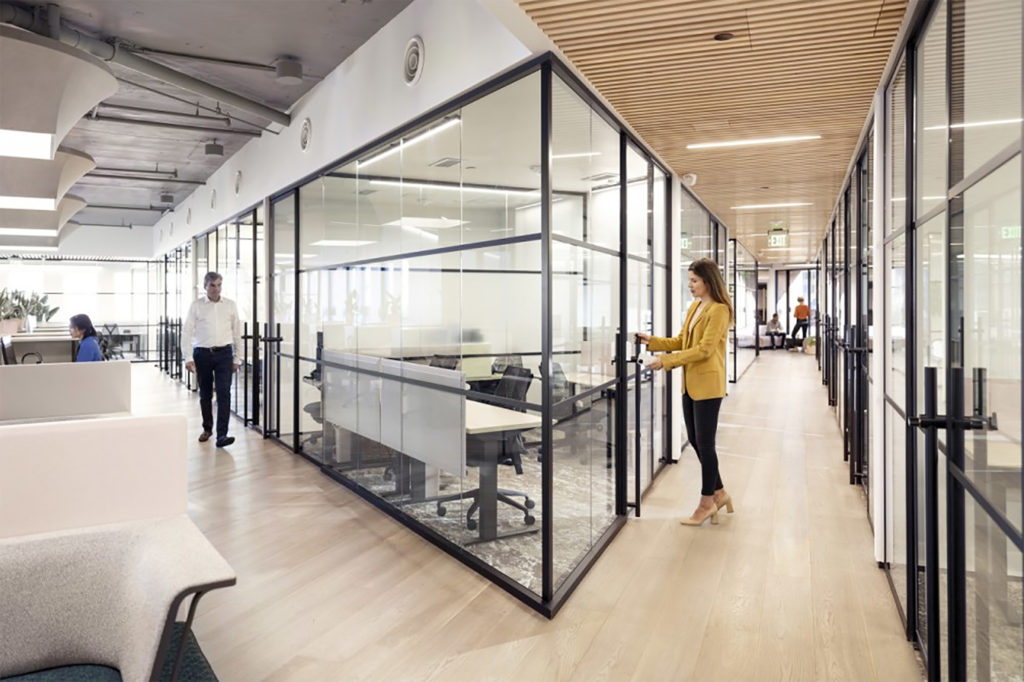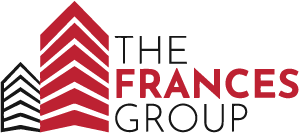
Proxy CEO Denis Mars knows it’s an exaggeration when people say they couldn’t live without their phones. But the startup’s digital identity technology could mean post-pandemic office workers won’t have access to much of anything without them.
The San Francisco-based startup uses wireless signals that allow devices to instantly recognize your credentials and preferences to sign you into teleconferences and other functions throughout the office, pay for your public transit or ask the barista for your usual — all without touching anything.
“It can check you into anything like a gym, event or airport lounge, all without touching anything,” Mars said of his company’s contribution to a contact-less world of the near future. “It takes a frictionless experience and makes it touchless.”
From phones that preemptively open elevator doors and automatically take employees directly to their floor, to Los Angeles-based Openpath’s encrypted entry badge mobile apps, tech companies are trying to make the worker transition back to the office as seamless as possible.
As most of the commercial real estate market is slowed by government stay-home orders, companies are scrambling to ensure they can quickly implement new technology ahead of anticipated openings. That’s an opportunity for startups like access control provider Proxy, Openpath and Nexkey — a Silicon Valley company that develops smart keys and access systems — and larger security companies including Kastle Systems, Siemens and Honeywell.
Silicon Valley tech companies, known for their cutting-edge workplace trends, are now reimagining the workplace in the aftermath of the global coronavirus pandemic. After years of trendsetting with in-house chefs and communal lunches, massage and game tables, and kitchen taps that dispense drinks from kombucha to cold brew, the region that innovated the modern office is working to reset the bar.
Read More CoStar News Coverage of the Coronavirus Outbreak
The Silicon Valley workplace transformation has already started. At biotech company Mission Bio’s headquarters in South San Francisco, the communal trays of catered lunches are set to become individual boxed meals. The soda machine and tubs of almonds will be replaced with canned and bottled beverages and individually wrapped snacks. Employees will also have access to on-site coronavirus tests every two weeks, according to information released by the company.
At iPhone maker Apple’s campus in Cupertino, California, the return of employees to the office are planned to be staggered over several months, with temperature checks given at the door. The offices of search engine provider Google in neighboringMountain View have long been famous for the multiple cafeterias spearheaded by top chefs, volleyball courts and an on-site bike-share program, but now employees aren’t likely to return until at least June, and protocol changes will be needed.
Both Google and social media company Facebook are reconfiguring their open-floor layouts, but for Facebook, employees are expected to work from home through the end of the year. Employees for online retailer Amazon are allowed to work remotely until at least October. Twitter CEO Jack Dorsey told employees in a letter this week that employees would be allowed to work from home indefinitely.
Changing Building Lobbies
San Francisco-based interior design company Studio O+A has worked with companies including ride-hailing provider Uber, online communications company Slack and software maker Microsoft, and has developed its own COVID-19 task force to study how workplace design will change once people return to their offices, said Primo Orpilla, the firm’s co-founder and principal. He expects big changes in redesigned lobbies and specifically designed spaces involving stickers or carefully placed furniture to help guide employees through a workspace while keeping their distance from coworkers.
The big question facing real estate owners now is how far do companies need to go with the changes?
For international architecture firm Gensler, which has worked with some of the biggest tech companies in Silicon Valley and around the world, the future will be focused on integrated technology, including clean air filtration systems, more touchless experiences and automated systems.
“There will definitely be an aspect where we rely on technology more,” said Natalie Engles, Gensler’s global technology design director. “The design aesthetic won’t change, but it will be more about health and safety for an employer’s workers. For tech clients we’ve been talking to, if the tools aren’t already out there, they’re figuring out how to make it themselves.”
According to CoStar data, the national office market faces a steep drop-off in new lease activity as tenants figure out what their future office spaces will have to look like. Companies, landlords and politicians around the world must safely bring employees back to the workplace amid swirling liability issues, potential spikes in coronavirus cases and worker hesitancy toward returning to offices. Silicon Valley, which has long been home to some of the most influential headquarters designs globally, is no exception.
“There was a lot of priority on culture in Silicon Valley, and that influenced a lot of decisions made about how space types could enable that to thrive,” said Engles. “Now, it will be about how to build a space to be healthy, but also look at other aspects like emotional to physical to mental wellness.”
Some companies plan to focus on short-term fixes such as Plexiglas dividers, mandatory masks or more signs reminding employees to wash hands or use the copious supplies of provided sanitizer. For the tech industry’s longstanding reputation as an innovator in the workplace, however, the changes will go far beyond makeshift partitions or cordoned-off urinals.
While most of the Bay Area’s innovative workplaces have been contained to Silicon Valley, the pandemic has meant its workplace technology can spread from a startup’s high-rise building in San Francisco to a sprawling office park in the Houston suburbs.
For companies willing to invest in pandemic-driven tech, employees who have recovered from the virus are likely to carry electronic “immunity passports.” An aggressive push to further automate the office could also include cleaning robots instead of a professional staff. No matter what though, Mars said the future is all about making it possible to not touch a single thing.
“How do we keep a healthy environment for everyone?” Mars said. His company is working with commercial landlords, mall operators, hotels and publicly traded companies. “Commercial real estate owners’ biggest challenge is lots of people going into buildings, so we’re thinking extra hard about how to bring workers back but provide a more secure environment.”
Author Credit: Katie Burke, Costar
